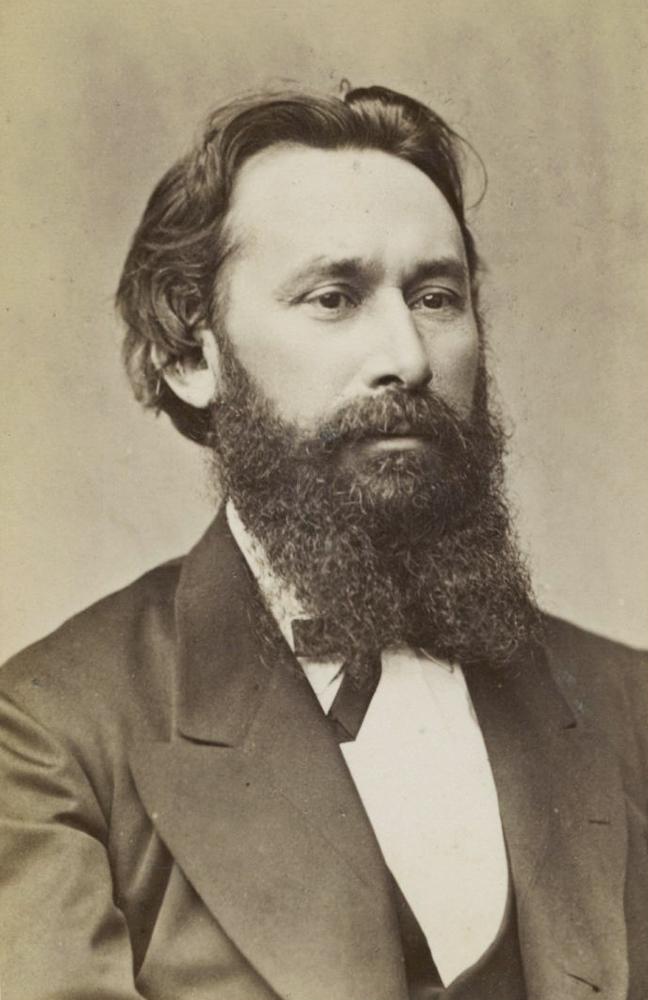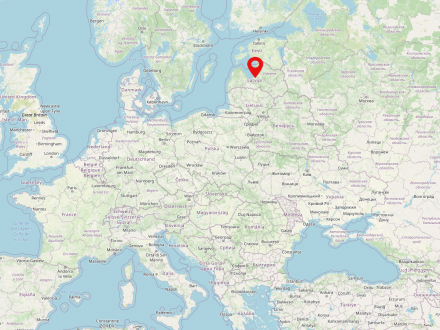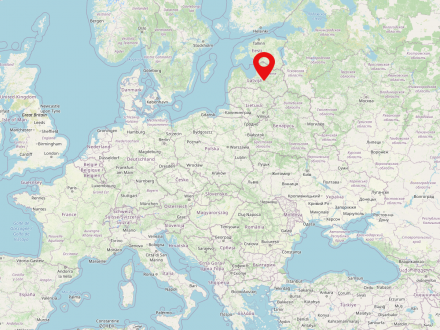Monika Hunnius is generally known as a Baltic German author. She, however, saw herself as a musician – and was part of a network of musicians that extended all over Europe, to which Julius Stockhausen, Johannes Brahms, and Clara Schumann belonged as well.
Text
In 1921, at the age of 63 and 13 years before her death, Monika Hunnius (1858-1934) began her literary career with notable support. The author Hermann Hesse (1877-1962) made a decisive publishing contract for his older friend possible by promising to write a foreword in her very first publication.1 From then on, Hunnius proceeded to make history as a regional author with biographically influenced retrospectives. She even received an honor in person from Paul von Hindenburg, the President of Germany, on the occasion of her 70th birthday, which she celebrated in her home city of .
Hunnius was literally able to profit from this attention in the last decade of her life, though she only accepted the acclaim reluctantly. For many years, she had tried to achieve recognition as an artist through her musical work. As a singer, her talent received, and still receives, little attention and her work as a singing teacher is virtually unexplored and unknown to this day.
So where does this discrepancy between others' perception and one's own perception of oneself stem from? How can this skewed perspective on the reception of Hunnius’s work and the depiction of her life be explained? The fact that this Baltic German artist left no inheritance behind certainly complicates the task of expanding the perspective on Hunnius’s career and corpus of creative work. A second deficit, often highlighted in musicology, is the forced secrecy of women in music history, whose stories are only slowly coming to light. Furthermore, the memory of Hunnius as a singer and singing teacher has been clouded by a plethora of other trivial difficulties. Modern vocal artists outlast their musical careers through audio recordings. Nothing comparable exists for Hunnius. Another way for her to be remembered could arise out of the legacy of her students. Unfortunately, neither her teaching away from the public eye, nor her assistance to the renowned tenor Raimund von zur Mühlen (1854-1931) garnered significant amounts of success. In addition, only few of her female students succeeded in making a name for themselves outside of the country.


Riga's old town with the bank of the Daugava, postcard motif from the early 20th century; Herder Institute for Historical Research on East Central Europe, Image Archive, Inv.-No. 4b219. CC BY-NC-SA 4.0
Riga's old town with the bank of the Daugava, postcard motif from the early 20th century; Herder Institute for Historical Research on East Central Europe, Image Archive, Inv.-No. 4b219. CC BY-NC-SA 4.0
Text
The complexity of her work and influence, however, is what makes Monika Hunnius so interesting for future generations. We must the search for the artist and all the various biographical details of her life via unconventional means. A look at Hunnius’s personal environment offers such an opportunity. This is where Hunnius’s work and her achievements are made apparent – in the ties to her colleagues, friends, and relatives.2 Thus, the story of her life can be deduced, from multiple perspectives, through the lenses of her companions. How remarkable this environment was becomes apparent in the following overview:
Like with many biographies, relationships within the family prove to be integral in shaping Hunnius’s later life. The father, a pastor, dies during Hunnius’s childhood. Her overly ambitious mother, out of financial concerns as a widow, puts an end to her daughter’s career as a singer. Her first concert experiences in Riga are followed by an encounter with the celebrated singer Amalie Joachim (born Schneeweiß, 1839-1899), who is making a guest appearance in town. She urges Hunnius to pursue a professional singing education under the tutorage of Julius Stockhausen (1826-1906). The experiences Hunnius gathers in the years 1882-1884 at Stockhausen’s school in Frankfurt am Main decisively chart the further course of her career. Utilizing the contacts she has made among her fellow students, Hunnius joins a network of musicians that extends all over Europe. The most prominent and key figures at the center of this network at that time, the 1880s, are Johannes Brahms (1833-1897) and Clara Schumann (1819-1896). The contacts to musicians from the Baltic States, which achieved a unique intensity in this network, are strengthened by Hunnius’s return to Riga in 1884. For example, the relationship to the aforementioned Raimund von zur Mühlen is enriched through years of cooperation. Von zur Mühlen surrounds himself with singers from all over Europe and even the USA, who receive advanced singing lessons during his summer school classes. Hunnius assumes the position of right hand and assistant of the master.


Julius Stockhausen (1826-1906), late 19th century portrait photo, digitized version of an original from the collection of the Bergen Public Library. Bergen Public Library / Herder-Institut für historische Ostmitteleuropaforschung, CC0 1.0
Julius Stockhausen (1826-1906), late 19th century portrait photo, digitized version of an original from the collection of the Bergen Public Library. Bergen Public Library / Herder-Institut für historische Ostmitteleuropaforschung, CC0 1.0
Text
Alongside this relationship, also known as “Paarkonzept” in musicology, the contact to songwriter, pianist, and music critic Hans Schmidt (1845-1921), who assumes a greater part in the musical life in Riga and later the young state of , as opposed to von zur Mühlen, intensifies in later years. Following the outbreak of World War I, Hunnius’s activity as a singing teacher comes to an end. She leaves the Baltic States and finds in Germany the protection she needs to pursue her literary work. Hunnius returns to Riga at the beginning of the 1920s and continues her work as singing teacher and author. In the last years of her life, health problems lead her to become dependent on full-time care. Hunnius dies in 1934. Visiting and interviewing some of her students has allowed us to gain insights into these final years of the life of an artist, who is now solely known for her literary work.
Latvia
deu. Lettland, eng. Latvian Republic, lav. Latvija
Latvia is a Baltic state in the north-east of Europe and is home to about 1.9 million inhabitants. The capital of the country is Riga. The state borders in the west on the Baltic Sea and on the states of Lithuania, Estonia, Russia and Belarus. Latvia has been a member of the EU since 01.05.2004 and only became independent in the 19th century.
Text
English translation: William Connor






